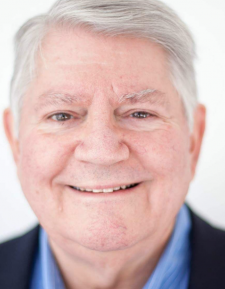Distinguishing between races began in America in 1619, with the importation of Africans as slaves. The American economy was built on that system and it survived for 250 years. While slavery was dominant in the South, all of America benefited from it, with the interdependency of the economy.
The Civil War and amendments to the Constitution freed the slaves. And under Lincoln, Reconstruction promised them a new day. But Lincoln did not live to implement Reconstruction. As it played out under Johnson and his successors, it merely changed the form of enslavement, from working with no rights and no pay to working with few rights and very low pay. The advent of tenant farming coupled with Jim Crow was cemented into place and lasted for 100 years.
A century after the Civil War the Civil Rights movement exploded onto the scene in America. This accompanied the second flight of African Americans north, this time to jobs in the cities as agriculture in the South waned. The unrest of the 50’s, 60’s, and 70’s produced many tangible results in the law, and in American culture.

Col Owens
But it did not eliminate inequality. None of the above developments eliminated inequality. The inequity of slavery, in place for 250 years, could only be overcome by intentionality. Which was missing. Most people were comfortable with inequality, and the benefits it brought them – cheap goods and services, provided by workers making little money and having few rights.
All of these prior phases of distinguishing between the races were taken intentionally, by peoples of the time. With little to no regard for how they affected African Americans.
It would be like placing a young child in a room without any interaction, any stimuli, and then at age 21 taking that child out of the room and placing him on a starting line with children who had had normal upbringings, and expecting him to compete successfully – because he was placed on the same starting line as the others. Without regard for the glaring inequalities in capacities produced by their different formative experiences.
In the current debate about race, many say, “it’s not my fault. I didn’t enslave anybody.” True, they didn’t. But they have lived their entire lives in the structures of society and the economy that were built on slavery, and its successor structures. They didn’t build those – but they have benefited from them all their lives. Unconsciously? Mostly. Unintentionally? Yes, strictly speaking.
But the key question is: what will dismantle those structures? The answer seems clear: intention. The intent and will to make up for the differences that are the result, not of present negative intentions, but of structures and institutions built over time by those who did have negative intentions and/or the complete absence of good intentions.
When people talk about reparations, they are not talking necessarily about cash. Cash by itself can do many things, but by itself it cannot overcome the years, decades, indeed centuries of neglect and deprivation. It cannot reduce or eliminate racial disparities that exist in the key areas of quality of life – education, health care, environment, employment, housing, infrastructure. To address these disparities requires investment.
This is the key to addressing race today. Intention created slavery. Intention maintained a system of discrimination, mistreatment, brutality, and a poor class of workers and families. As intention got us into this situation, only intention can get us out. To work to create equality, it is not enough to put people on the same starting line. Opportunity by itself is not enough. We need significant investments in all these areas, to begin to truly level the playing field, to get people ready to stand on the same starting line.
Can we do this? Yes. We are the United States of America. We can do anything we set our minds to do. Still, even in this most confused time.
The key is intention. And will. Here is where we must search our souls.
Col Owens is a retired attorney. He teaches Poverty Law at NKU’s Chase College of Law. His memoir, Bending the Arc Toward Justice, (Cincinnati Book Publishing, 2020) is coming out in the fall.

















Col Owens is right. It’s time to pass relief for cities and states, extended unemployment benefits, voting security, and support the postal service. Essential workers, many of them Black and Latino are suffering from COVID, layoffs, and potential evictions. McConnell do your job!